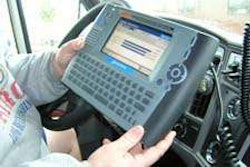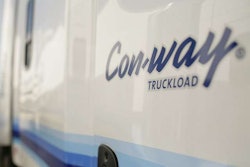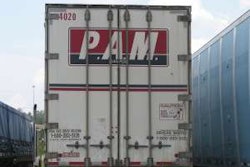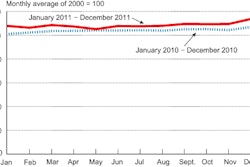Idealease Inc., in partnership with the National Private Truck Council, will present “The BEST Step You Can Take,” safety and compliance seminars in 30 cities in the United States and Canada from March through May. These seminars are designed to help private truck fleet professionals maintain a safe fleet, provide safety training to their managers, reduce violations and accidents and satisfy annual Federal Motor Carrier Safety Administration compliance requirements.
“The Idealease/NPTC 2012 Safety and Compliance Seminars thoroughly cover the latest in Compliance, Safety and Accountability (CSA), the FMCSA program designed to promote compliance and reduce losses and fatalities in the U.S.,” says Dave Helge, Idealease vice president of maintenance and safety.
The 2012 Idealease/NPTC seminars provide a structured step‐by‐step approach to help attendees understand how to comply with FMCSA regulations, manage commercial motor vehicle safety and control liability exposures. Virtually all aspects of commercial truck operation are covered, including FMCSA driver screening tools, driving qualifications, hours of service (drivers’ daily logs), drug and alcohol testing rules, vehicle maintenance and inspection, accident recordkeeping and CSA.
“As an added benefit, we have included the FMSCA Drug and Alcohol Supervisor training to the seminar agenda this year,” says Helge. This training is required for all managers of commercial truck drivers. Seminar attendees will receive a certificate acknowledging completion of the two hours of training mandated by FMCSA CFR 382.603.
All seminar attendees receive the “Idealease Guide to Transportation Safety and Compliance” that assists fleet managers with safety and compliance documentation, the “Idealease Pre‐ and Post‐Trip Inspection DVD” for driver education and a subscription to the Idealease Safety Bulletin, a weekly e‐mail safety and compliance publication.
“After attending the Idealease one‐day safety and compliance seminar, private truck fleet professionals are aware of the current industry safety rules and regulations, and have the knowledge and tools needed to comply with the regulations, control their liability exposures and take their safety and compliance program to a much higher level,” Helge says.










